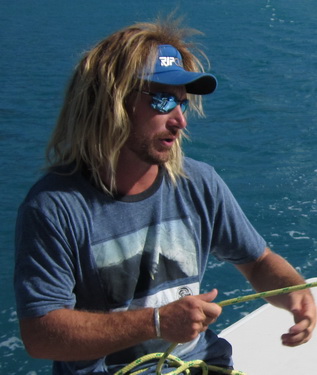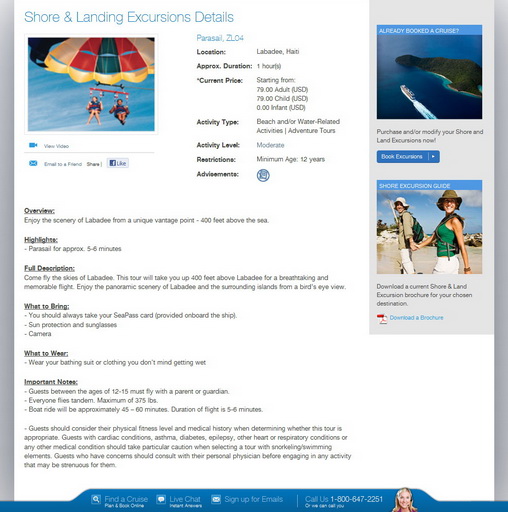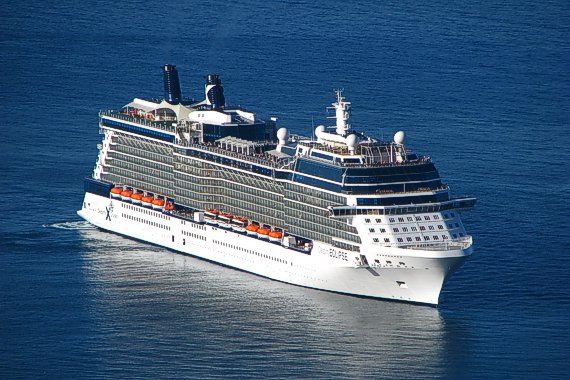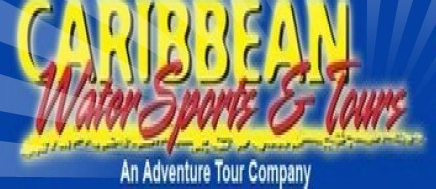Cruise Ship Litigation and the application of the law is an ever-changing landscape. Below is a compilation of important cases recently published that have changed the law as it pertains to cruise ship and admiralty litigation:
Robert D. Peltz and Carol L. Finklehoffe Leesfield & Partners
Miami, Florida
Robert Peltz is the Chairman of the Cruise Line Committee (Maritime Law Association)
Carol Finklehoffe is a Member of the Cruise Line and Passenger Committee (Maritime Law Association)
Admiralty Jurisdiction
Gossett v. McMurtry, 2010 AMC 2122 (D.S.C. 2010)
A defamation claim by one sports fisherman against another for taking embarrassing photographs and then showing them to others ashore after the conclusion of a fishing trip did not meet either element necessary to establish admiralty jurisdiction. Initially, the court concluded that the tort of defamation was not completed until the defendant showed the photographs to others. Since this occurred ashore, the location requirement for asserting admiralty jurisdiction was not met. The court further held that the claim also failed to meet the requirement that the actions have an impact on maritime commerce.
Maintenance and Cure
Stanton v. Buchanan Marine, L.P., 2010 AMC 2170 (SD.N.Y. 2009)
In upholding a collective bargaining agreement provision that limited maintenance payments to 90 consecutive days, even if the injured seaman had not reached maximum medical cure, the court relied upon a long line of cases upholding limitations on maintenance in legitimately negotiated CBA’s. See e.g. Frederick v. Kirby Tanks Ships, Inc., 305 F.3d 1277 (11th Cir. 2000); Baldassaro v. United States, 64 F.3d 206 (5th Cir. 1995); Barnes v. Andover Co., L.P., 900 F.2d 630 (3rd Cir. 1990); AI-Zawkari v. Am. S.S. Co., 871 F.2d 585 (6th Cir. 1989); Macedo v. F/V Paul and Michelle, 868 F.2d 519 (11th Cir. 1989); Gardiner v. Sea-land SVRV. Inc., 989 F2d 943 (9th Cir. 1986); Ammar v. United States, 342 F.3d 133 (2nd Cir. 2003).
Punitive Damages
Nes v. Sea Warrior, Inc., 2010 AMC 2297 (Wash. Sup. Ct. 2010)
A Washington trial court concluded that the Supreme Court’s decision in Atlantic Sounding v. Townsend, 129 S.Ct. 2561 (2009) which upheld the imposition of punitive damages in maintenance and cure cases also allowed the recovery of such damages under the Jones Act. In rejecting the long line of cases to the contrary, the court concluded that the dissent in Townsend “makes it clear that it understands the majority decision to allow punitive damages under the Jones Act.”
Royal Caribbean Cruises Ltd. v. Doe, 44 So.3d 230 (Fla. 3d 2010)
Under Florida Statutes ‘768.72, which precludes the assertion of a claim for punitive damages in the absence of Aa reasonable showing by evidence in the record or proffered by the claimant which provides a reasonable basis for such damages,@ it was error for the court to permit an amendment in a seaman=s claim filed in state court without undertaking the requisite evidentiary analysis.
Arbitration
In Thomas v. Carnival Corp., 573 F.3d 1113 (11th Cir. 2009), the Eleventh Circuit concluded that an arbitration clause in a seaman’s collective bargaining agreement was unenforceable where it operated in conjunction with a Panamanian choice of law provision to deprive a seaman of his right to bring an action under the Seaman’s Wage Act. In over a dozen recent cases, different judges in the Southern District of Florida have construed Thomas in often conflicting manners. These cases, include:
Lindo v. NCL (Bahamas) Ltd., 2009 WLD 7264038 (S.D. Fla. 2009) (J. Graham).
In Lindo, the Plaintiff’s CBA required that he submit his claims to arbitration proceedings in his home country (Nicaragua), which would apply the law of the vessel’s flag (Bahamas). Although the Plaintiff argued that the provision would therefore deprive him of his claims under the Jones Act, the court refused to extend the holding in Thomas to bar enforcement of claims arising outside of the Seaman’s Wage Act. Instead, it held that it must rely upon the Eleventh Circuit’s explicit holding that a Jones Act claim is subject to arbitration in Bautista v. Norweigian Cruise Line, Ltd., 396 F.3d 1289, 1302 (11th Cir. 2005). But see contra Williams v. NCL (Bahamas) Ltd., 2011 WL 1206820 (S.D. Fla.)(Lenard).
Bulgakova v. Carnival Corp., 2010 WL 5296962 (S.D. Fla. 2010) (J. Seitz).
In Bulgakova, another federal district judge utilized a different analysis, but reached the same result in refusing to void an arbitration provision for a seaman’s claims under the Jones Act, unseaworthiness and for maintenance and cure. The court concluded that while Panamanian substantive law might bar the seaman’s Jones Act claim, it would likely recognize his non-statutory claims as a basis for recovery. Therefore, while the choice of law provision might “threaten to extinguish the plaintiffs claims,” there was no indication in the case that the court would subsequently be deprived of an “opportunity for review” at the award enforcement stage. Thus, it held that if the plaintiff was in fact denied his U.S. maritime remedies during the course of the arbitration, his remedy would be to come back after the arbitration and raise the claim in the post proceeding enforcement stage. Accordingly, the court ruled that the plaintiff s request for relief was “premature” until after the arbitration was actually conducted.
Sorica v. Princess Cruise Lines, Ltd., 2010 Fed. FLW D437 (8/14/09) (J. Huck)
Another judge rejected the seaman’s request to have an arbitration provision declared null and void after the cruise line had stipulated to having the case governed by U.S. substantive law, even though it was to be arbitrated in Bermuda. Although this stipulation removed the crux of the Thomas objection to arbitration, the court nevertheless went on to note in dicta:
the fact that the arbitration agreement may not be enforceable because it is purportedly null and void, does not mean that the arbitration agreement does not exist or that the dispute is not one that “relates to an arbitration agreement … covered by the convention.” … in other words, jurisdiction is not contingent upon the validity or enforceability of the arbitration agreement, but simply whether the four jurisdictional prerequisites have been met and the claims relate to the arbitration agreement.
See also Orozco v. Princess Cruise Line, Ltd., 2010 WL 3942854 (S.D. Fla.)(King) (compelling arbitration based upon cruise line’s agreement to waive choice of law provision); Gawin v. Princess Cruise Lines, Ltd., 706 F.Supp.2d 1261 (S.D. Fla. 2010)(Ungargo)(same); Matthews v. Princess Cruise Lines, Ltd., 728 F.Supp.2d 1326 (S.D. Fla. 2010)(Gold)(same); Krstic v. Princess Cruise Lines, Ltd., 706 F.Supp.1271 (S.D. Fla. 2010) (Gold)(same).
Harrison v. NCL (Bahamas) Ltd., 2011 WL 1595170 (S.D. Fla. 2011)(Cook)
Yet another district court judge reached the opposite result in Harrison, concluding that since it takes two parties “to stipulate” that the cruise lines agreement to waive a choice of law provision was ineffective, thereby causing the contract to run afoul of Thomas. The court further determined that since the contract did not have a severability clause, that it would have been inappropriate in any event to severe the offensive choice of law provision.
Kovacs v. Carnival Corp., 2010 Fed. FLW D438 (S.D. Fla. 2009) (J. Huck)
In yet another variation on the theme, the cruise line stipulated to arbitrate the plaintiff’s Seaman’s Wage Act claim under U.S. law, but refused to similarly stipulate as to the accompanying Jones Act claim. The Court concluded that Panamanian law does not provide a seaman with a reasonable equivalent to the rights provided by the Jones Act. Accordingly, it held that it would be against public policy to compel arbitration of the plaintiff’s Jones Act claim “because to do so would deprive her of important statutory rights provided by Congress to effectuate public policy.” The court went on to further hold that it would be inefficient to bifurcate the plaintiff’s separate claims and accordingly, granted the seaman’s request to remand the case back to state court.
Morocho v. Carnival Corp., 211 U.S. Dist. LEXIS 4316 (So. Dist. Fla. 2011)(J. Martinez)
Still another judge concluded that a seaman’s complaint seeking recovery for violation of the Jones Act, unseaworthiness, failure to provide maintenance and cure, failure to treat and for penalty wages was not subject to arbitration where the employment contract contained a choice of law provision requiring the application of Panamanian law in reliance upon Thomas. In reaching this conclusion, the Court noted that while the validity of the seafarers agreement is typically a question for the arbitrator to determine, the issue of the validity of the arbitration clause contained within the contract is appropriate for resolution by the court.
Doe v. Princess Cruise Lines, Ltd., 696 F.Supp. 2d 1282 (S.D. Fla. 2010)
In another crew member case arising in a different context it was held that an arbitration provision in a crew contract did not apply to sexual assault claim by one crew member against another, since the dispute “did not arise out of the seaman’s employment.”
Forum Non Conveniens
Wilson v. Island Fees Investments, Ltd., 590 F.3d 1264 (11th Cir. 2009)
In an opinion arising from a case against a resort in the Bahamas, the Eleventh Circuit Court of Appeals reversed a dismissal based upon forum non conveniens, which will likely have an impact on cruise line cases involving similar issues. In its opinion, the court concluded that while the financial inability of a Plaintiff to bring a lawsuit in a foreign forum will not affect the analysis of whether the forum provides a reasonable alternative, nevertheless, a patty’s claim of financial hardship “is a factor to be considered in the balancing of interests that bears upon convenience, a balancing process that is to be performed after identifying an alternative forum.” See also Gross v. British Broad. Corp., 386 F.3d 224 (2d Cir. 2004); Nowak v. Tak How Invs., Ltd., 94 F.3d 708 (1st Cir. 1996).
Discovery
Schulte v. NCL (Bahamas) Ltd., 2011 WL 256542 (S.D. Fla.)
A security video is not privileged from disclosure on the grounds of work product and a carrier is not entitled postpone the production of the video until after it deposes a passenger, whose fall was captured on the video. The fact that the carrier “preserved the video from destruction” in anticipation of litigation did not transform the video into work product protected material.
Shore Excursions
Koens v. Royal Caribbean Cruises, Ltd., 2011 WL 1197642 (S.D. Fla. 2011)
A suit arising out of a shoreside excursion during which the passengers were robbed at gun point was dismissed by a federal judge in reliance upon an old intermediate Florida appellate court decision, Carlisle v. Ulysses Line Ltd., 475 So.2d 248 (Fla. 3d DCA 1985). The plaintiffs had purchased a ticket aboard the ship for a segway tour conducted on a remote 162 acre private nature preserve in the Bahamas known as “Earth Village.” During the course of the tour, a number of the excursion participants were attacked by armed robbers, who stole their possessions after terrorizing them at gun point. The court dismissed the Plaintiff’s complaint on the grounds that “the duty to warn [of foreseeable criminal activity] is limited to dangers known to exist in the particular place where the passenger is invited to, or reasonably may be expected to visit.” Accordingly, the court concluded that allegations of the rising crime rate in Nassau in general were insufficient to give rise to a duty to warn of the potential for crimes occurring at the Earth Village Nature Preserve. The court went on to further hold that the failure to allege any specific deficiencies in regard to the safety record of the excursion operator would preclude a claim against the cruise line for negligent misrepresentation based upon the claimed failure to “fully vet and vouch for the safety record of the tour operator.”
Bridgewater v. Carnival Corp., 2011 WL 817936 (S.D. Fla. 2011).
In order to state a claim against a cruise line for the purported negligence of a shore excursion operator under the theory of apparent agency, the Plaintiff must allege a sufficient basis to establish the required elements that: (1) the carrier made representations which caused the passenger to believe that the excursion operator had authority to act for it; (2) such belief was reasonable and (3) the passenger reasonably relied upon this belief to its detriment. The court similarly held that in order to state a claim under the theory of joint venture, the Plaintiff would have to sufficiently plead facts to support the following five elements: (1) the intention of the parties to create a joint venture, (2) joint control or right of control, (3) joint proprietary interest in the subject matter of the venture, (4) the right of both venturers to share on the profits and (5) the duty of both to share in the losses.
Samuels v. Holland American Line – USA, Inc., 2010 WL 3937470 (W.D. Wash. 2010)
A passenger who was rendered a quadriplegic during a beach excursion as a result of being flipped by a wave so that he landed on his neck was barred from recovery against the carrier on the grounds that the sea conditions were considered to be open and obvious.
Criminal Law
U.S. v. Williams, 2011 WL 1057550 (11th Cir. 2011)(unpublished)
U.S. Customs did not need “reasonable suspicion” to search a passenger’s cabin and accordingly, the discovery of cocaine while the vessel was docked in Port Everglades following a return from Costa Rica did not constitute a violation of the passenger’s Fourth Amendment rights. See also U.S. v. Alfaro-Moncada, 607 F.3d 720 (11th Cir. 2010)(reasonable suspicion not necessary for Customs officers search of a crew member’s cabin while vessel was docked in U.S. territorial waters).
Shipboard Medical Care
Wajnstat v. Oceania Cruises, Inc., 2011 WL 465340 (S.D. Fla. 2011)
In an effort to circumvent the Barbetta line of cases, which hold that a cruise line may not be held vicariously liable for the negligence of a ship’s doctor, Barbetta v. S/S Bermuda Star, 848 F.2d 1364 (5th Cir. 1988), the Plaintiff alleged that the carrier was negligent in equipping the vessel’s medical center, training the shipboard medical staff, failing to provide communication equipment to reach shoreside medical providers and for failing to timely evacuate the Plaintiff. The court rejected the first three arguments on the grounds that they were barred by that portion of the Barbetta rule which provides that “a cruise ship is not a floating hospital.” The court rejected the Plaintiff’s evacuation claim on the basis that there were no allegations that the Captain had overruled any order by the ship’s doctor to evacuate the passenger.
Rinker v. Carnival Corp. __ F.Supp. 2d ___ (2010 WL 4811760) (S.D. Fla. 2010)
The court rejected additional attempts to circumvent the Barbetta rule by arguing that the carrier was negligent for failing to hire a ship’s doctor licensed by either the state of the vessel’s home port (California) or its flag (Bahamas) on the grounds that no such duty exist. The court rejected the Plaintiff’s further argument that vicarious liability could be imposed on the grounds that the carrier violated the international safety management code on the grounds that the ISM does not create any legally enforceable duties to cruise ship passengers. See also Calderon v. Reederei Claus-Peter Offen, 2009 WL 3429771 (S.D. Fla. 2009).
Continue reading
 Cruise Ship Lawyers Blog
Cruise Ship Lawyers Blog



 Since these tragic events took place last November, the Coast Guard performed a meticulous investigation by marine casualty investigators and special agents from San Juan. The Coast Guard inspected the vessel and found numerous inadequacies, including an inadequate tow-line, and deficient vessel equipment. The master on the vessel was also unlicensed at the time of the incident. Based on these findings and countless witness accounts, Coleman was arrested and charged by a federal grand jury with being responsible for the accident. The one-count indictment is pursuant to 18 U.S.C.A. § 1115. Misconduct or neglect of ship officers. The statute provides in part that a captain employed on a vessel, by whose misconduct, negligence, or inattention to his duties, the life of any person is destroyed, shall be fined or imprisoned not more than ten years, or both.
Since these tragic events took place last November, the Coast Guard performed a meticulous investigation by marine casualty investigators and special agents from San Juan. The Coast Guard inspected the vessel and found numerous inadequacies, including an inadequate tow-line, and deficient vessel equipment. The master on the vessel was also unlicensed at the time of the incident. Based on these findings and countless witness accounts, Coleman was arrested and charged by a federal grand jury with being responsible for the accident. The one-count indictment is pursuant to 18 U.S.C.A. § 1115. Misconduct or neglect of ship officers. The statute provides in part that a captain employed on a vessel, by whose misconduct, negligence, or inattention to his duties, the life of any person is destroyed, shall be fined or imprisoned not more than ten years, or both.


